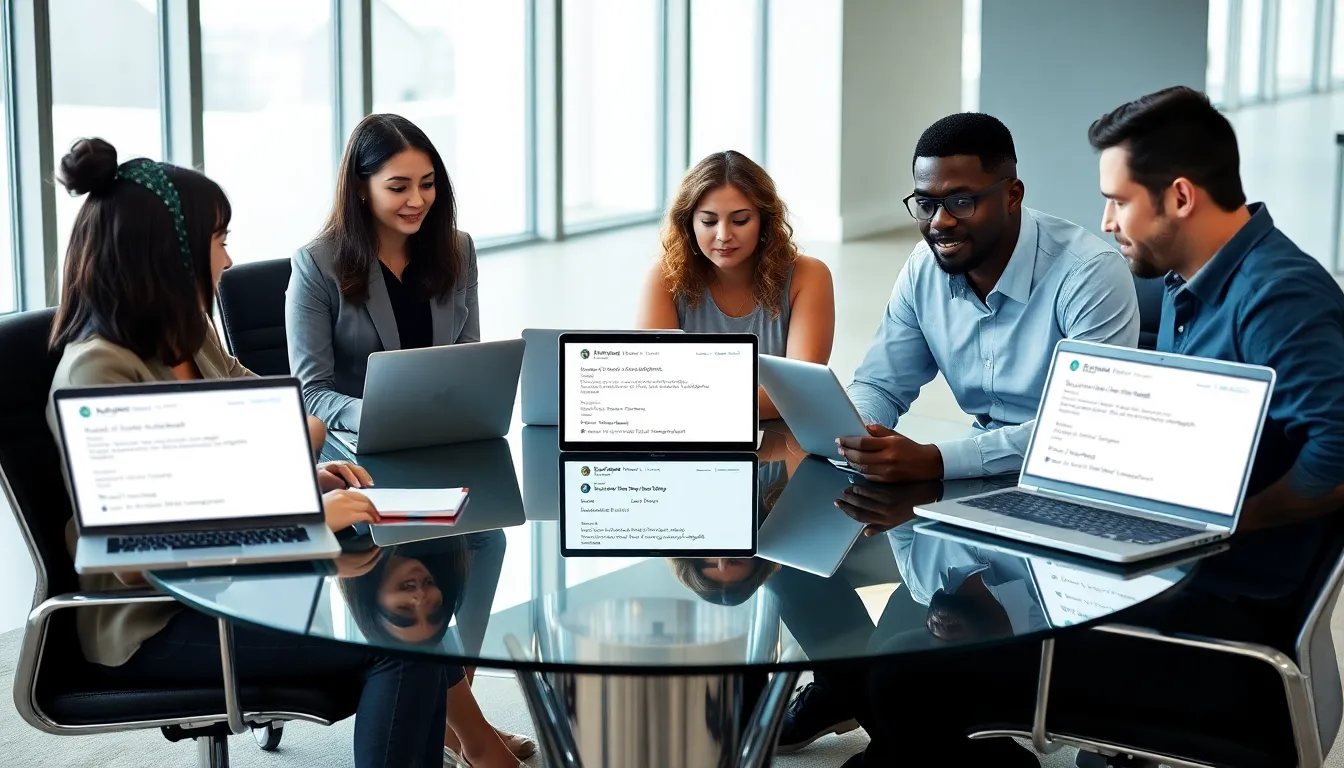Table of Contents
ToggleIn the bustling world of game development, every pixel counts, not to mention every email address. You might be thinking, ‘What’s so special about an email address?’ Well, they’re your first point of contact, your digital handshake, and sometimes even the key to landing that dream collaboration. This guide dives into how to make your email game strong, with just the right balance of professionalism and a sprinkle of personality. Get ready to transform your communication style and level up your game studio’s email strategy.
Understanding Email Address Formats

When it comes to email addresses, there are some common formats game studios often use. Understanding these can significantly enhance communication efficiency.
Common Formats for Game Studios
Most game studios opt for simple yet professional email formats. The tried-and-true method usually includes the individual’s first and last name, seamlessly packaged in a format like [email protected]. Alternatively, you might find variations like [email protected] for more casual interactions or specific departments, such as [email protected] for customer service inquiries.
Personal vs. Professional Email Addresses
It’s crucial to differentiate between personal and professional email addresses. While a fun email like [email protected] might work with friends, it certainly isn’t the best fit for reaching out to potential partners or clients. A professional email exudes credibility. It’s wise to reserve humorous or obscure usernames for your personal communication and keep your business interactions polished and straightforward.
How to Create Professional Email Addresses
Creating a professional email address involves a few thoughtful steps that can make a world of difference in how you’re perceived online.
Choosing the Right Domain
Choosing the right domain is the first step toward establishing a strong brand identity. Using a custom domain, such as @yourstudioname.com, not only enhances professionalism but also builds brand recognition. Start by registering a domain that reflects your studio’s name: this ensures that anyone contacting you knows they’re reaching the right place.
Best Practices for Email Setup
Once you have your domain, setting up email addresses should be straightforward. Aim to create addresses that align with team roles. For instance, [email protected] or [email protected] provide clear points of contact. Also, consider setting up a group email that directs inquiries from various channels to a specific team, ensuring no message goes unnoticed.
Managing Email for Game Development Teams
Managing email for game development teams can be a Herculean task, especially when multiple projects are in the mix. Streamlined and organized communication is key.
Collaborative Tools and Platforms
Investing in collaborative tools can dramatically improve how teams manage email. Platforms like Slack or Microsoft Teams allow for real-time communication but can be integrated with email as well. Keeping conversations centralized means no one gets left out, and team members can easily pull in email threads without losing context.
Integrating Email with Project Management Tools
Integrating email with project management tools is another effective strategy. Use systems like Trello or Asana to link tasks directly from emails. This way, every time an email update comes in, team members can see how it directly impacts their current workflow, leading to better task management and accountability.
Ensuring Security and Privacy
In today’s digital landscape, ensuring security and privacy when using email is non-negotiable. Game studios often handle sensitive data, making protection paramount.
Data Protection Regulations
Understanding data protection regulations is essential. Regulations such as GDPR in Europe require careful handling of personal data, especially if your game collects user information. Ensuring compliance not only protects your customers but also shields your studio from potential legal issues. Make it a point to familiarize yourself with the key regulations relevant to your studio’s operations.
Tips for Secure Email Usage
Adopting best practices for secure email usage is critical. Encourage team members to use two-factor authentication and regularly change passwords. Also, remind them to be cautious with suspicious emails and to avoid using public Wi-Fi networks to access email accounts.







